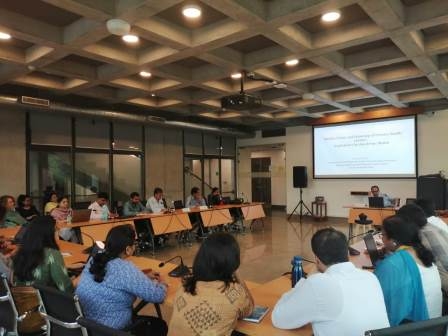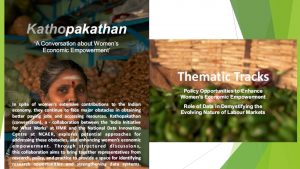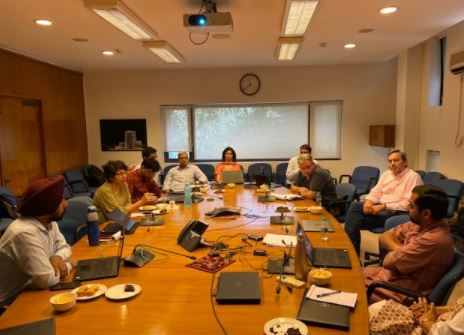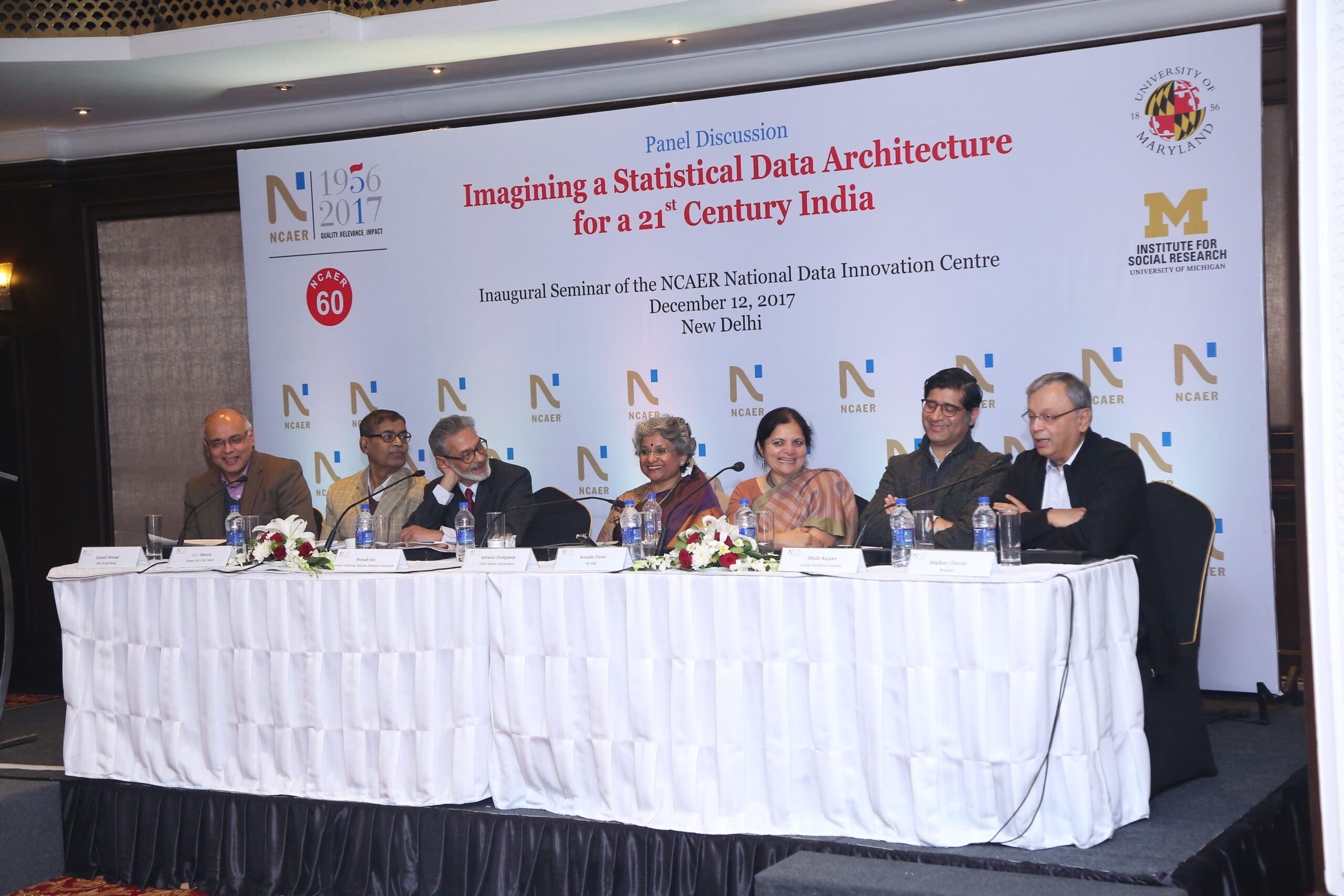The NCAER-National Data Innovation Centre (NDIC) and Institute for Financial Management Research-India Initiative for What Works (IFMR-IIWW) jointly organised an initiative called Kathopakathan (conversation) on Women’s Economic Empowerment at the Viceregal Hall, The Claridges, New Delhi, on March 24, 2018. NCAER-NDIC seeks to develop innovative approaches to collecting data for development, including data on gender, while IFMR-IIWW focuses on women’s economic empowerment through evaluation, research, and creation of a multi-stakeholder platform for synthesising and leveraging evidence to inform policy. During the conversation, structured and interactive discussions were held on the following two themes surrounding women’s economic empowerment with representatives from the spheres of research, policymaking, and data collection:
How can policy opportunities enhance women’s economic empowerment through participation in the workforce by countering the constraints faced by them in the labour market?
Should the nature of data collection change given the evolving nature of work and contextual factors that influence such activities, especially since the available data sets on women’s economic participation like the NSS have apparently not kept pace with far-reaching changes in labour markets?
The first session was inaugurated by Anna Roy, Advisor and Head of the Department, Industry, Data Management and Analysis, NITI Aayog, who highlighted the importance of government and private agencies in collecting, cleansing and streamlining data, as well as upgrading government websites to make them more user-friendly. She said that NITI Aayog would be developing a data portal to consolidate different data sets from both government and private sources. NITI Aayog is also currently partnering with Mckinsey to build a women’s entrepreneurship platform (www.wep.gov.in), which will disseminate information on best business practices and the available Central and state schemes to help conduct research on women entrepreneurs.
Sonalde Desai, Senior Fellow, NCAER, and Professor, University of Maryland, introduced the workshop agenda and briefly talked about the NCAER-National Data Innovation Centre (NDIC), set up by NCAER in collaboration with its consortium partners, University of Maryland and University of Michigan for strengthening India’s data ecosystem for the 21st Century challenges. Initial funding for NDIC is provided by Bill & Melinda Gates Foundation.
The primary goals of NDIC are:
- To pilot innovative data collection methods and to mainstream successful pilots into larger data collection efforts—data collection innovations will focus both on household surveys and big data, particularly uses of administrative data;
- To train a new generation of data scientists through formal and informal training; and
- To serve as a resource for diverse stakeholders including government data agencies and ministries.
Sharon Buteau, IFMR LEAD, pointed to the absence of financial platforms and services targeted at women, and to the imperative to distinguish between various kinds of work available for women. She emphasised that the digital transformation currently taking place in India should help connect women entrepreneurs with each other more effectively. The ‘ENGAGE’ platform that is a part of IWWAGE is one such forum that can bring women together and facilitate a discussion on women’s empowerment.
In her presentation on “Future of Work: Opportunities for Women”, Farzana Afridi, Associate Professor, Indian Statistical Institute, and Research Fellow, IZA, outlined the importance of using the life-cycle approach for studying women’s labour/employment in addition to the current static methodology because women face different constraints at different stages of their lives. She also cited data to show the huge gender gap in imparting of skills to girls and boys, and reiterated that most women migrate after marriage, which reduces their access to social networks and kinship. For instance, only 20 per cent of the rural married women in the age group of 15-60 years were reportedly in the labour force as compared to 50 per cent of the rural unmarried women. Several supply side and demand constraints also cause low women’s labour force participation, and need to be tackled urgently.
The second presentation on “Employment Statistics and Their Shortcomings” was made by Radhicka Kapoor, Senior Fellow, Indian Council for Research on International Economic Relations (ICRIER). She identified the various surveys on labour force conducted by the NSS such as household surveys, including the NSS employment and unemployment (organised and unorganised) survey, and the Labour Bureau’s household survey. The enterprise level surveys include the Annual Survey of Industries, the NSS Survey of Unorganised and Non-agricultural Enterprises, the Economic Census, the Quarterly Employment Survey undertaken by the Labour Bureau in eight selected sectors, and the Micro, Small and Medium Enterprises (MSME) Census by the Ministry of MSME. These surveys show that data in India is neither comprehensive in coverage nor available on a real-time basis. India’s employment data architecture is thus in a state of transition.
The presentations were followed by policy perspectives by P.C. Mohanan of the National Statistical Commission and Santhosh Mathew, formerly Joint Secretary, Ministry of Rural Development. They highlighted the need for innovation and more comprehensive research on inclusion of data on women in the national level employment statistics. They also averred that the changing cultural and social milieu needs to be incorporated in the data ecosystem of the country. Better management of data can also help in integrating the younger, more aspirational and more mobile sections among women into the labour market. Finally, it is imperative to promote skilling of the labour force, especially women.
The discussions at the Kathopakathan event are part of a series of activities to be undertaken by NCAER-NDIC for building research capacity, and promoting innovation and excellence in data collection in the country.









